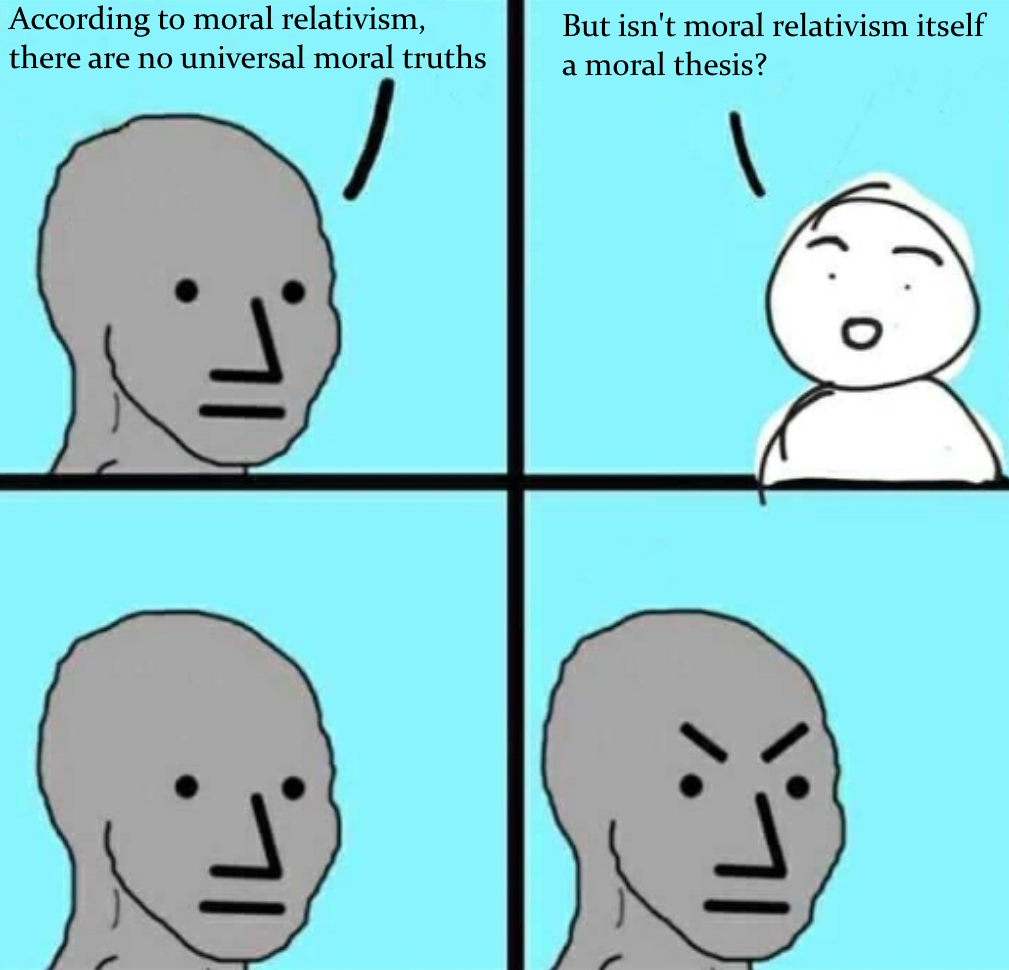this post was submitted on 26 Sep 2023
204 points (87.8% liked)
Memes
45581 readers
1 users here now
Rules:
- Be civil and nice.
- Try not to excessively repost, as a rule of thumb, wait at least 2 months to do it if you have to.
founded 6 years ago
MODERATORS
you are viewing a single comment's thread
view the rest of the comments
view the rest of the comments

I've never heard a rational defense of moral relativism that made any sense. If there are no moral truths, then serial killers have done nothing wrong for example. If a moral relativist admits that there are some moral truths, then moral relativism is completely indefensible. At that point, you're just arguing over what is and what is not a moral truth.
Universal moral truths. Like absolutes. We can say killing is bad, but many would say killing a mass murderer currently on a murder spree would be more moral than letting them kill a bunch of people.
There’s a fundamental misunderstanding here that seems suspiciously like a bad faith argument.
It all starts with defining what morality means. The way I would define morality is behaviors that maximize flourishing for sentient creatures and minimize suffering. While it is clearly difficult to quantify flourishing and suffering, there are behaviors that clearly cause suffering in this world and impede the opportunity for flourishing and, by the above definition of morality, are plainly immoral. The way I see it, rejecting the possibility that flourishing and suffering can be quantified at all is the only argument that can be made against moral absolutism. Everything else is just quibbling over relevant variables across the spectrum of available behaviors to determine what makes them more or less moral. There is always a behavior that is objectively the more moral choice, but it might be difficult in practice to determine which is the more moral choice due to a lack of available relevant data. The absence of said data shouldn't be assumed to be because it doesn't/can't exist, but rather that it hasn't been collected. Rejecting the idea that there is always a more moral behavior amongst several choices is the dangerous assumption, imo.
Sure, and how does your understanding contend with the concept of a serial killer of Nazis? Or a capitalist?
This does not follow from moral relativism. Moral relativism simply states the morality of serial killers is determined by people rather than an absolute truth.
For example, if you add the detail of “serial killer of humans”, most societies would deem that morally wrong. In contrast, “serial killer of wasps” would be considered perfectly fine by many. A moral relativist would say the difference between these two is determined by society.
You can, of course, claim that murdering humans is not morally wrong. A moral absolutist might say “you’re wrong because X”, while a moral relativist might say “I don’t agree because X”.